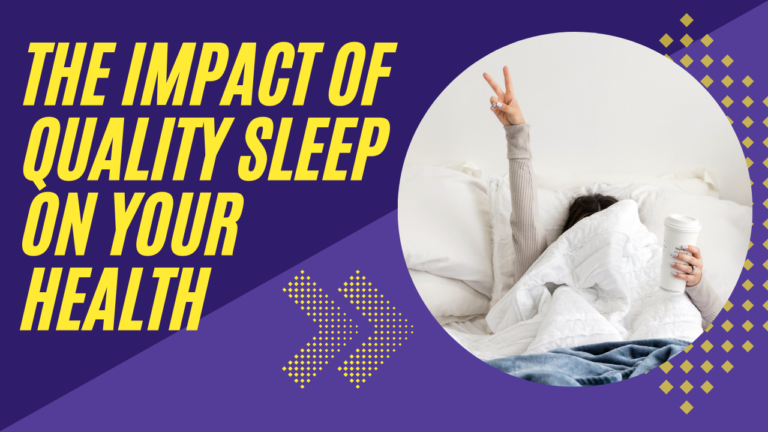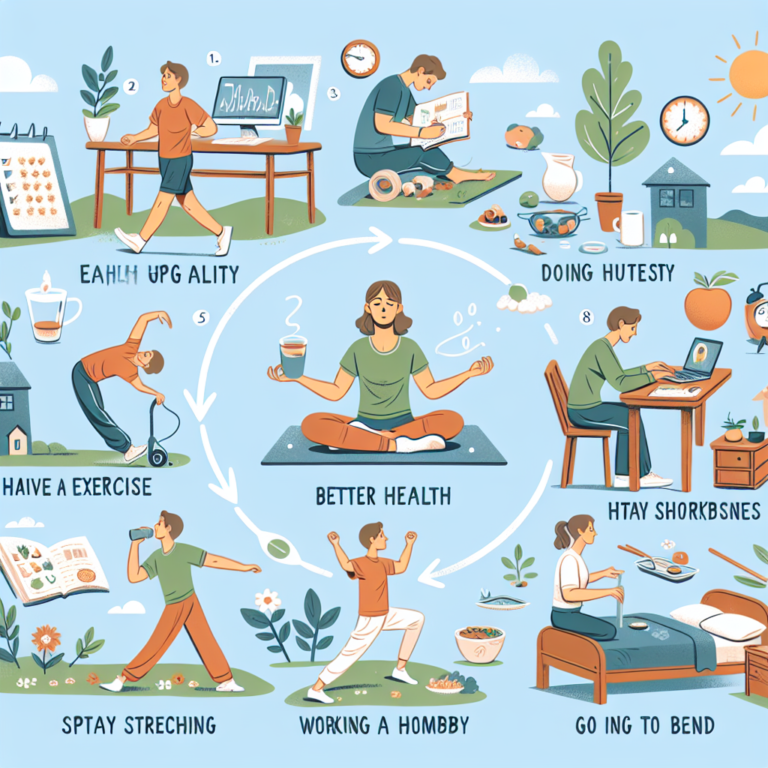8 Ways to Reduce Stress and Improve Your Mental Health
Introduction
Feeling stressed and overwhelmed is a common experience in today’s fast-paced world. However, it’s essential to prioritize your mental health and find ways reduce stress effectively. In this article, we’ll explore eight practical strategies that can help you manage stress, improve your mental well-being, and a more balanced life.
Regularly
Regular physical activity is one of the effective ways to reduce stress and your mental health. Exercise releases endorphins, also known as “feel-good” hormones, that can help alleviate feelings of anxiety and depression. Whether it’s going for a run, practicing yoga, or hitting the gym, find an activity that you enjoy and commit to it regularly.
Benefits of exercise:
- Boosts mood and overall well-being
- Reduces anxiety levels
- Improves sleep quality
Practice Mindfulness and Meditation
Mindfulness and meditation are powerful tools for reducing stress and promoting mental clarity. By focusing on the present moment and cultivating awareness of your thoughts and feelings, you can better manage stress and anxiety. Consider integrating mindfulness practices into your daily routine, such as deep breathing exercises or guided meditation sessions.
Tips for practicing mindfulness:
- Start with short meditation sessions
- Focus on your breath
- Practice gratitude daily
Maintain a Healthy Diet
Eating a balanced diet rich in nutrients is essential for both your physical and mental health. Certain foods, such as fruits, vegetables, whole grains, and lean proteins, can help regulate mood and reduce stress levels. Avoid excessive consumption of processed foods, sugary snacks, and caffeine, which can negatively impact your mental well-being.
Nutrient-rich foods to include in your diet:
- Omega-3 fatty acids (found in fatty fish, flaxseeds)
- Magnesium-rich foods (such as nuts, seeds, leafy greens)
- Vitamin D sources (like fortified dairy products, sunlight exposure)
Establish a Relaxation Routine
Creating a relaxation routine can provide a sense of stability and calmness in your daily life. Whether it’s taking a warm bath, reading a book, or listening to soothing music, find activities that help you unwind and destress. Make time for relaxation regularly to recharge your mind and body.
Relaxation activities to consider:
- Take a nature walk
- Practice progressive muscle relaxation
- Engage in aromatherapy
Cultivate a Supportive Social Network
Building strong relationships with friends and family members can significantly impact your mental health and well-being. Social connections provide emotional support, reduce feelings of isolation, and offer perspective during challenging times. Make an effort to prioritize your relationships and engage in meaningful interactions with loved ones.
Ways to nurture social connections:
- Schedule regular catch-ups with friends
- Join a community group or club
- Volunteer for a cause you care about
Get Sufficient Sleep
Quality sleep is essential for your mental health and overall well-being. Lack of sleep can contribute to increased stress levels, irritability, and difficulty concentrating. Aim for seven to nine hours of restful sleep per night and establish a bedtime routine that promotes relaxation and healthy sleep patterns.
Tips for improving sleep quality:
- Create a dark, quiet sleep environment
- Avoid screens before bedtime
- Practice relaxation techniques like deep breathing
Limit Exposure to Stressors
Identifying and managing sources of stress in your life is crucial for maintaining your mental health. Evaluate your daily routines, commitments, and relationships to pinpoint potential stress triggers. Set boundaries, learn to say no when necessary, and prioritize activities that bring you joy and fulfillment.
Strategies to limit stressors:
- Delegate tasks when feeling overwhelmed
- Practice time management techniques
- Communicate openly about your boundaries
Seek Professional Help When Needed
If you’re experiencing persistent feelings of stress, anxiety, or depression, don’t hesitate to seek professional help. Mental health professionals, such as therapists, counselors, or psychiatrists, can offer valuable support, guidance, and treatment options tailored to your individual needs. There is no shame in asking for help when you need it.
Signs to watch for:
- Persistent feelings of sadness or hopelessness
- Changes in sleep or eating patterns
- Difficulty focusing or making decisions
Conclusion
Prioritizing your mental health and well-being is essential for leading a fulfilling life. By incorporating these eight strategies into your daily routine, you can effectively reduce stress, improve your mental health, and enjoy a greater sense of balance and contentment. Remember, self-care is not selfish—it’s necessary for your overall well-being.







